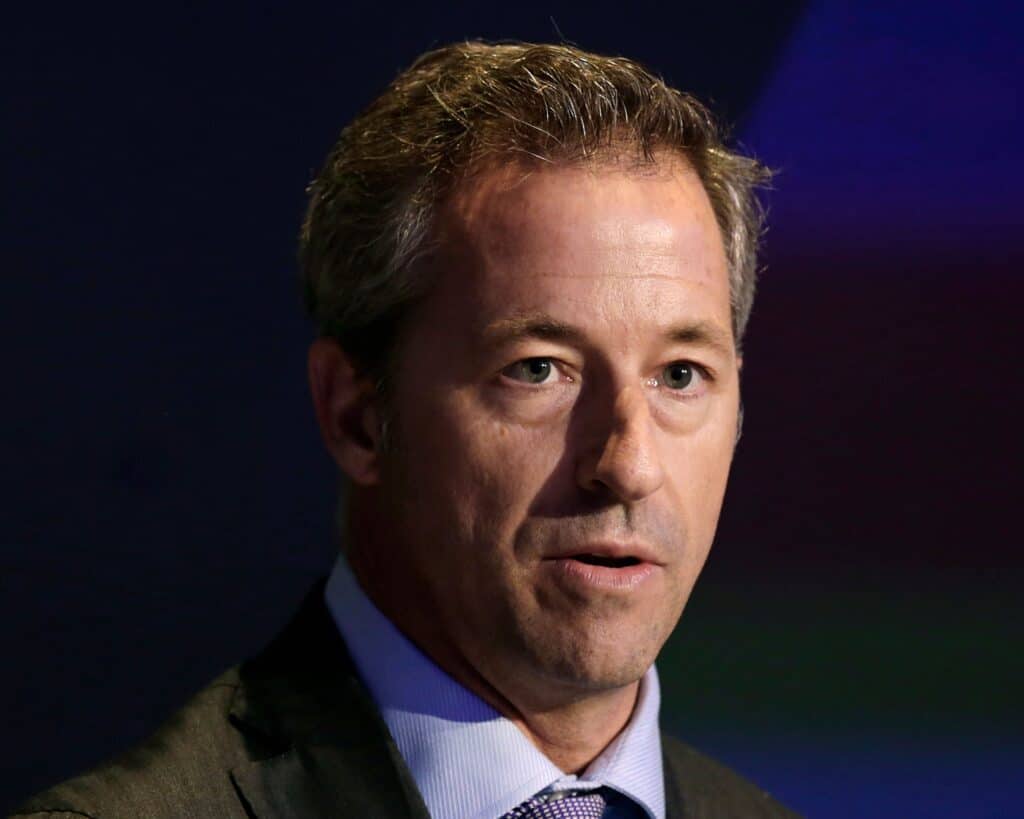Laurence Tosi’s WestCap Management wrote down the combined value of its main investment funds by almost a fifth in the second quarter as prospects dim for Silicon Valley startups to swiftly generate windfalls.

Tosi, the former chief financial officer at Blackstone Inc. and Airbnb Inc., founded WestCap in 2019 and won over customers with its focus on marketplace-oriented startups and a pitch that they could lean on its team of business specialists. WestCap has helped fund a variety of buzzy ventures including mental-health-care provider Cerebral Inc., crypto lender Celsius Network and Klarna, the e-commerce payments company with the motto “Shop now. Pay later.”
Such wagers haven’t fared well in this year’s tech rout. WestCap cut the value of its first fund by some $750 million to about $2.5 billion in the quarter, according to people familiar with the matter, who asked not to be named because they weren’t authorized to speak publicly. WestCap also reduced the valuation of a newer fund by about 5 percent.
The downturn is testing WestCap’s proposition: It can not only spot which maturing startups have the power to transform into industry leaders, it can spur them along with its expertise. WestCap executives have told investors and others that the firm is now focused on helping a number of portfolio companies respond to the market turmoil or deal with other problems, people close to the company said.
The first fund, launched in 2019, was still valued at 2.6 times its invested capital as of June. And using one measure of returns, it’s delivering an 83 percent net internal rate of return as of June.
“Our unique operating platform consistently drives best-in-class returns,” the firm said in a statement to Bloomberg. “While we accurately reflect current market conditions in a quarter, we manage 10+ year funds and have the time and skill and experience to further create value with our companies and for our investors.”
Earlier this year, the firm gave investors in its first fund the option to cash out by selling stakes to new investors.
Unicorn Era
Signs of fatigue are showing after a heady era in which savvy investment firms poured money into Silicon Valley unicorns with unpredictable profits and later minted billions as the ventures sought public listings. Federal Reserve efforts to fight inflation are cooling the stock market, sending the tech-heavy Nasdaq Composite Index down more than 25 percent this year and prodding private investors to reassess their valuations of promising private enterprises. Some venture capitalists are sitting out funding rounds that once helped fuel startups’ growth, further undermining their prospects.
The rout has hit once highflying buyers of private stakes such as Tiger Global Management. Growth-oriented funds from firms such as Blackstone and TPG Inc. have also taken some writedowns. It’s a reminder that the industry, despite its goal of uncorrelated returns, isn’t immune to steep market swoons.
When marketing WestCap, Tosi, who goes by the nickname LT, touted his credentials at Merrill Lynch, Blackstone and Airbnb, and his employees’ experience at Ipreo, a fast-growing data provider that once counted Blackstone as an investor.
He signed up wealthy investors and institutions, such as South Carolina’s state pension-fund manager. By the end of last year, WestCap reported more than $7.6 billion under management.
Like other growth-equity firms, WestCap participates in funding rounds and doesn’t take majority stakes or seek to exert the same influence as buyout firms. But over the years, it has made staff available to companies to support them in marketing, cash management and other functions. A top executive at one portfolio company said WestCap’s team also serves as a sounding board for ideas.
In recent weeks, WestCap has privately updated investors on the state of its holdings.
It slashed a valuation for Cerebral by half in the quarter ended June. That pegged the SoftBank-backed startup at roughly three times WestCap’s original investment, down from about six. Cerebral told employees this year it would stop writing new prescriptions for controlled substances that treat attention deficit/hyperactivity disorder. The U.S. government is scrutinizing how such businesses dispense stimulants, and in May Cerebral said it’s cooperating with an investigation into whether it violated the Controlled Substances Act. It hasn’t been charged with wrongdoing.
WestCap also cut the valuation of Klarna below its original investment. The firm had previously valued it at 1.4 times invested capital. A fundraising round this year valued Klarna at $6.7 billion, a fraction of the $45.6 billion it commanded last year as the lender became Europe’s most valuable startup.
WestCap marked down its stake in checkout business Bolt by about half from March valuations, and it also cut a valuation for Sonder Holdings Inc. even further below the level at which it invested. The rental company went public by merging with a special purpose acquisition company and is down more than 80 percent this year.
Some investments such as travel site Hopper Inc. and wealth-management platform Addepar Inc. are helping to bolster returns.
In a March regulatory filing, WestCap said the fund behind those deals is “substantially through its investment period, and, subject to relatively modest follow-on investments, is substantially fully invested.” It is deploying some of the fund’s remaining spare cash to support companies, people familiar with the matter said. WestCap could consider injecting more cash using money from its second fund, something it’s done before, the people said.
The firm raised some $2.25 billion for a new fund by last year, Bloomberg reported at the time, and it’s continuing to seek money from institutions and high-net-worth individuals.
Many investments in the newer fund are still valued at cost. WestCap wrote down one company, Celsius Network, to some 15 cents of every dollar invested. The embattled crypto lender filed for bankruptcy in mid-July.



